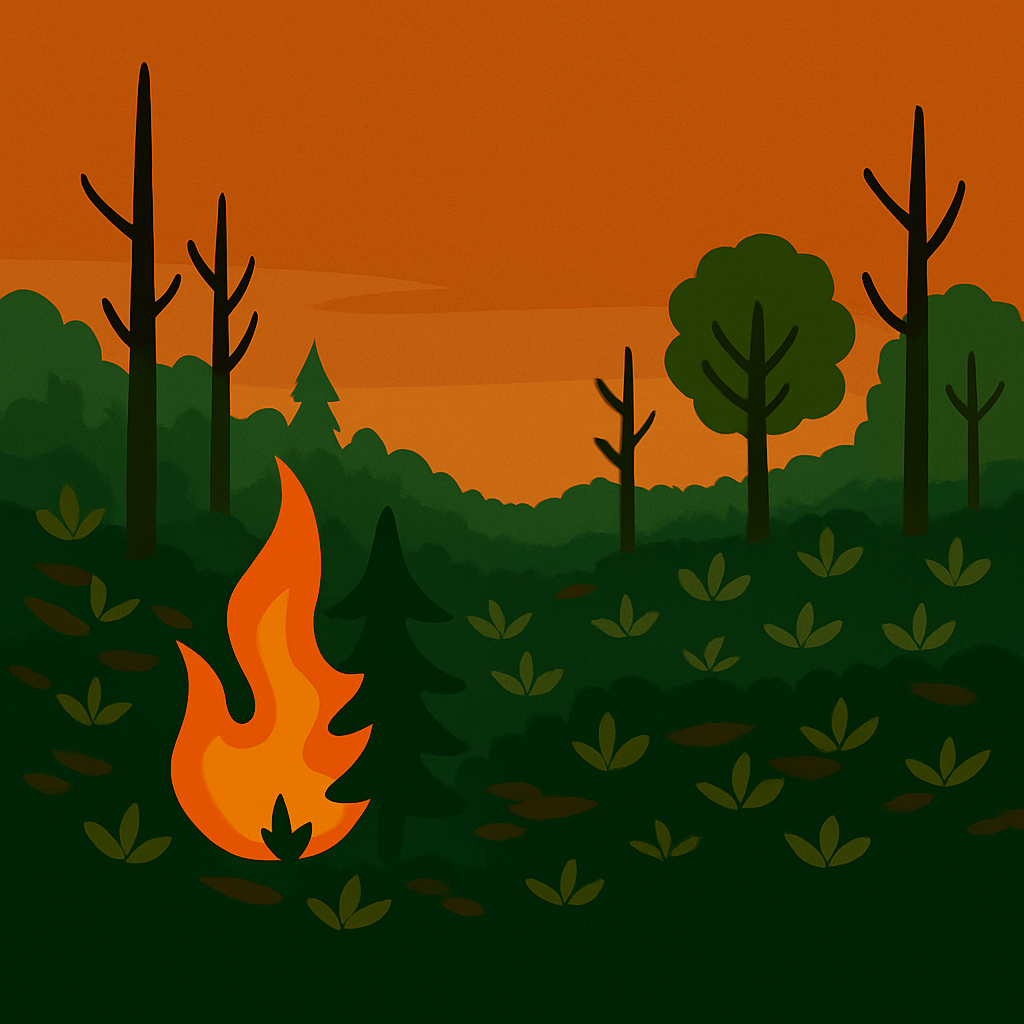.jpg)
Understanding Fire's Role in Ecosystems
Gain a solid grasp of how fire affects plants, animals, soils, and ecological processes across different ecosystems—not just forests, but grasslands, wetlands, and shrublands too.
.JPG)
Applying Fire Effects Knowledge to Planning and Monitoring
Understand how to predict, evaluate, and communicate fire effects—essential skills for writing burn plans, monitoring during prescribed fires, and interpreting outcomes post-fire.
.JPG)
Integrating Fire Effects into Management Objectives
Learn how to align fire use with ecosystem goals, helping land managers choose appropriate fire regimes and assess whether fire is achieving desired results over time.
About the Course
Course Objectives At the successful completion of this course, you will be able to: 1. Demonstrate an understanding of fire as an ecological process using the concepts of fire regimes and fire effects at multiple scales. 2. Identify realistic management solutions in an adaptive management framework. 3. Communicate effectively with fire and resource professionals based on a common understanding of fire effects. 4. Demonstrate an understanding of how fire management related resource issues interact. 5. Demonstrate an understanding of how to manipulate treatments to achieve desired first order fire effects. This is an information based only course that will provide you with the content needed to support your training in fire effects monitoring, which can be learned on the job or through fire effects monitoring courses and workshops. What to expect in the course: Self-paced and flexible: Learn when it works for you, no pressure. Whether you’re on duty, in the field, pulling a night shift or catching up on a rainy day, you set the pace. Avatars and interactive learning: You’ll notice the use of avatars. They help keep the instruction consistent and visual. I know avatars aren’t for everyone, but don’t worry, they’re not the whole course. You’ll also get real field examples, visuals, readings, and plenty of practical exercises and reviews to keep it grounded in practical fire work. Your Student Manual: Download it right from the course and use it to follow along, make notes, and track your understanding as you go. Many participants print it and keep it handy for burn planning or field reference. Certificate of Completion: When you finish all lessons, Thinkific will automatically email you a professional certificate to confirm your completion, perfect for training records or CPD logs. Read more from the Frequently Asked Questions. Instructor bio at www.crprofessional.ca
Updates Are Happening
I’m in the process of transitioning all RX-310 lesson videos from avatars to real-person recordings featuring me. This update will roll out gradually, with full completion expected by fall 2026. In the meantime, you may notice a mix of both formats throughout the course. Thank you for your patience as I work through this upgrade. Have fun in the mean time! Stay curious, Colleen
